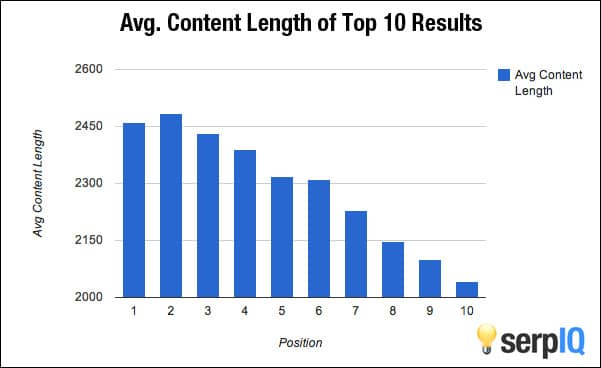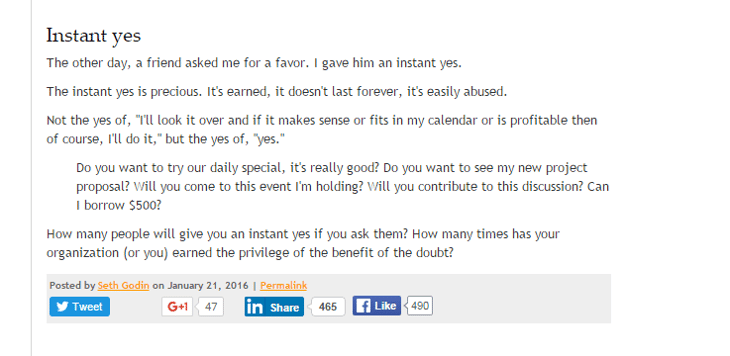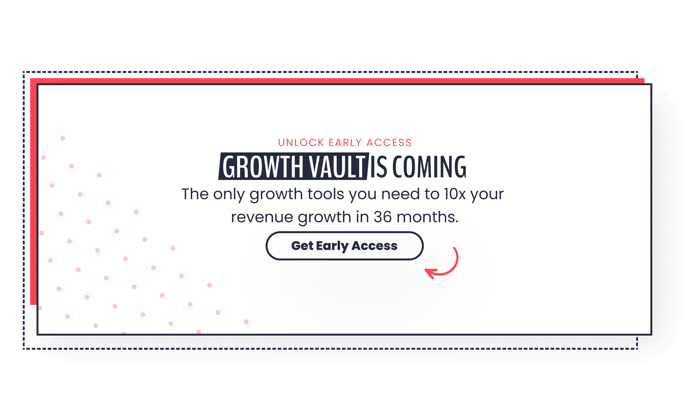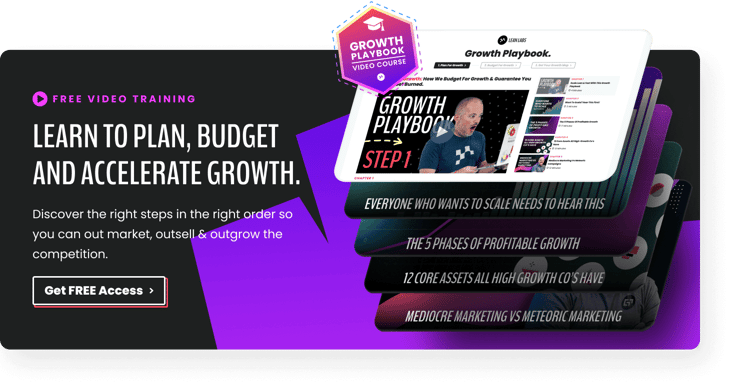While length is only one aspect of quality, it is an important one. In order to rank well with Google's search engine algorithms, earn social shares, and engage readers, your blog posts must be worth your audience's time. This means your content strategy should focus on delivering articles with the best length and visual content for your target customers' needs.
How long should a blog post be? Here's what the experts say.
Back in 2012, Constant Contact recommended that business bloggers write 500-700 words. Today, according to Hubspot, the average word count of their highest-performing blog articles is between 2,100 and 2,400 words. The trend seems to suggest a shift to longer content over time. So, while the experts are divided about the precise word count of the perfect business blog, research concludes that longer is generally better. Here's what recent studies have found:
- Medium reports the ideal length of a blog post is 7 minutes or 1,600 words. The average American reads at about 300 words per minute.
- SERPIQ reports that from an SEO perspective, the top 3 Google results are between 2,350 and 2,500 words.
- Moz reports that posts between 1800 and 3000 words attract 15 times more links.
- Neil Patel has found that posts of at least 1,500 words earn the best SEO, social sharing, and engagement results.

So why does the number vary so much?
When writing blog posts, it's important to remember that you are writing to please two different audiences - your readers, and the search engines. Those are very different goals. Search engines attempt to deliver relevant content to their human users, but they are not human. Search engines use word count (among other things) as an indicator of content quality, whereas humans may simply want a one-sentence answer to a specific question. When writing an ideal blog, you must balance these two facets, providing in-depth, relevant content with a word count that signals authority to the search engine crawlers, but that is concise and engaging for your readers.
In general, there's a strong case that, for most topics, key search phrases, and audiences, longer is better. However, because of the complexity of the human/search engine balancing act, the ideal length for business blog posts depends largely on your specific goals.
Is SEO the Goal of Your Blog?
Google, Bing, Yahoo, and other search engines take hundreds of factors into account to determine content quality. Ultimately, it's not worth your time to try and guesstimate these ranking factors and game the Google algorithm. If SEO is your goal, it is worth your time always to deliver better and more in-depth content than your competitors.
You should perform some basic competitive analysis every time you write a blog. This should include an assessment of blogs that are already ranking for your target search term
Your competitive analysis could indicate that you need to write really in-depth content to increase your chances of ranking. Your competitive analysis could also indicate that your competitors have done well with 600-900 word topics, and you may not need to write 3,000 words to "beat" their results.
Competitive analysis shouldn't be the only factor to consider, but it is something to take into account
Are You Trying to Improve Engagement with Your Articles?
Data from The Write Practice indicates that posts around 275 words are the best for stimulating discussion and inspiring reader comments. However, this is just one data point, and there are many exceptions to this rule.
For example, Marcus Sheridan of The Sales Lion has an incredibly active community, though he tends to post longer articles, typically several thousand words. Your blog's data is likely the best indicator for your own engagement triggers. You should evaluate the performance of your past blog posts to find out what resonates with your specific audience.
Are You Using Visual Media in Your Blog Posts?
While visual media doesn't technically become part of your word count, it is an aspect of length. It's true - visual media takes time to consume. A picture may not be worth a thousand words, but it's probably worth about 300.
Moz has found:
- By adding simple visual content, like lists and images, you will earn more links.
- Posts with videos included will attract nearly three times more links.
- Posts with videos, images, and lists will attract almost six times more ILDs than a plain text post.
HubSpot has found:
Here's where things get really interesting.
Daily Blog Tips notes that Medium takes imagery into account when providing the "estimated length" of their articles. See? Visual media is a component of length to consider!
If you are creating a visual-heavy concept, word count might not be what you need to focus on. Chances are, a 1,200-word blog post packed with graphs and informative images would take the "average" reader about 6-9 minutes to absorb. A 2,500-word post with no images would also require about 8 minutes.
Typically, a shorter blog with better visuals will yield better engagement, shares, and SEO results than longer content that only includes text.
How Much Substance Can Your Blog Deliver?
Quality content is in the eye of the beholder, which is why one of the best SEO techniques is audience optimization (a.k.a. getting the right content in front of the right people). Your topic or keyword choice will dictate the length of your blog post, but your material must also be substantive and useful to your target audience.
If you're rolling your eyes, we get it. "Substance" and "usefulness" are really subjective. But everyone can admit that some topics don't need 3,000 words to be covered adequately. Can you imagine someone trying to write 4,000 words on "what flavor of ice cream tastes best with red velvet cake?" It would be a painful read.
If you have:
- Covered your topic in-depth
- Offered more value than your competition
- Incorporated high-quality visuals
- Verified your research and facts
You're done! If you ended up with 800 words, you're still done. The length of the blog is not as important as the content.
How Frequently Do You Publish Blog Articles?
If you are blogging multiple times a week or day, you can afford occasional short blog posts. Length can be viewed in the context of your editorial calendar -- if you're offering several long-form, high-value posts a week; shorter, engagement-driven posts can fit into your mix seamlessly.
Seth Godin. The exception that proves the rule.
Godin is often trotted out as an example of a famous blogger whose posts are pretty consistently short -- often 75-500 words. He doesn't publish on a consistent schedule, either.

However, you have to remember that Godin's voice and following were built over a multi-decade career as a marketing thought leader. By publishing multiple bestselling books, he's earned the right to create short blogs. Maybe you will too, but for now, it's best to stick with the fundamentals and deliver quality content to the appropriate audience on a consistent basis.
Do You Want to Earn Social Shares?
Chances are, the answer to this question is yes. Not only can social media shares increase your exposure to potential customers, search engines really like social media shares. They're considered "social signals," or human-verified proof of content quality and relevance. Google and other major search engines use social signals to determine content ranking.
Marketing expert, Neil Patel recommends writing 1,500 words or more to maximize your social signals. And according to Quicksprout, posts that are 1,500 words or longer earn the most shares on Twitter, Facebook, and LinkedIn.
| Word Count |
Facebook Shares |
Tweets |
Linkedin Shares |
| 0-399 |
66.44 |
207.08 |
30.44 |
| 400-699 |
57.85 |
207.43 |
32.19 |
| 700-999 |
83.16 |
254.90 |
45.54 |
| 1,000-1,499 |
111.66 |
295.97 |
54.74 |
| 1,500+ |
110.30 |
312.52 |
56.89 |
It would seem again, that longer posts are the better bet. Although we all know Jim doesn't actually read all 1,500 words of all the articles he shares on LinkedIn.
So What is The Ideal Word Count for Blog Articles?
Well, that depends, but chances are, the answer to "how long should a blog post be?" is "pretty long". Unless your competition is low and the topic doesn't lend itself to in-depth analysis, you probably should strive for at least 1,500 words for best results. But remember, quality always trumps quantity. If you want to learn how the best marketers incorporate their blog posts into their overall marketing strategy, check out our free Growth Playbook.










